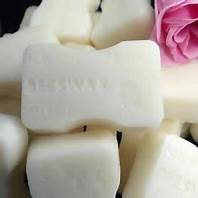A damaged skin barrier can leave you dry, itchy or oily. So, how do you fix it?










A damaged skin barrier can leave you dry, itchy or oily. So, how do you fix it?
We all want our skin to look its best.
No matter the occasion or the time of year, clear and glowing skin boosts confidence and gives us all a pep in our step.
Sadly, though, skin is complicated, with its vitality dependent on a number of factors.
Genetics, hormones, diet, sleep, sun exposure, sleep and conditions like eczema can all play a part in the overall look and feel of your skin.
In addition to this, your epidermis can be exposed to many different elements which subsequently damage the skin barrier, aka the outermost layer.
And an injured barrier can lead to quite a few irritating issues.
So, how can you tell if your skin barrier is damaged?
Dr Hayley Leeman, a consultant dermatologist at the Cadogan Clinic, says a damaged skin barrier can be caused by a number of external and internal factors.
‘Weather extremities such as humidity, heat, freezing temperatures, wind, sun exposure and pollution can cause irritation,’ she tells Metro.co.uk.
‘Pollutants, allergens, irritants and exposure to chemicals can also pay a role. Incorrect skincare can also lead to problems – especially if you are using products that are not suitable for your skin – or you are over-exfoliating and over-washing.’
Stress and ageing can also cause the skin to deteriorate, so while the latter is inevitable, you might want to find some ways to unwind to reduce the former.
Certain medications can also impact the skin, so if you’re noticing changes after switching to a certain pill, it may be worth chatting to your doctor.
Dr Leeman says it is important to recognise the signs of a damaged skin barrier.
‘It can manifest in many different ways,’ she explains.
‘A weakened cover can cause the skin to become dry, itchy, flaky, irritated, red, tight, oily, dehydrated and cause breakouts.
‘It can also accelerate the effects of ageing. Fine lines and wrinkles become more visible as well as skin discolouration.’
How do you treat it?
Thankfully, there are a number of ways to heal the skin barrier. To begin, you must identify the cause.
‘Once you find the source, you can treat the problem,’ Dr Leeman advises.
‘It’s recommended to simplify the skincare regime. Moisturise the skin to ensure adequate hydration, and select products containing ingredients such as hyaluronic acid or ceramides.
‘Avoid excessive sun exposure, always use SPF50 and keep out of the sun during peak times.
‘Avoid hot showers or baths and pat the skin dry with a towel rather than excessive rubbing.
Reference: Adain O'connor: Metro:
Articles-Latest
- 8 common mistakes that could be making your dry lips worse
- Dermatologist's insight on shower frequency without harming skin
- ‘Making Black More Beautiful’: Black Women and the Cosmetics Industry in the Post-Civil Rights Era
- A damaged skin barrier can leave you dry, itchy or oily. So, how do you fix it?
- What is collagen and why is it so popular in the beauty industry?
- Skin icing's not just for summer – this cryotherapy technique will get you party season ready
- How much sunscreen should you use and how often do you need to apply it?
- Are AHAs Safe?
- EXFOLIANTS - Cosmetics Unmasked
- ASTHMA - Toxic Beauty
- PHOTOSENSITIVITY - Toxic Beauty
- How to Tighten Your Loose Skin After Weight Loss
- Everything You Need To Know Before Getting A Septum Piercing
- What you should know about treating rosacea in darker skin tones
- Shampoos and Conditioners Designed to Soothe Dry, Itchy Scalps
- 3 things an expert wants you to know before getting filler
- Dissolving filler: everything you need to know
- How thread lifts differ to facelifts – and filler injections
- People are using face tape to minimise wrinkles, but does it work? After asking a plastic surgeon, I tried it for myself
- Reality of Black beauty influencing - making foundation with eyeshadow and unequal pay
Cosmetic ingredients
LOGIN
Who's On Line
We have 50 guests and no members online
Articles-Most Read
- Home
- Leucidal
- White Bees Wax
- Cosmetic Preservatives A-Z
- Caprylyl Glycol
- Cosmetics Unmasked - How Safe Are Colorants?
- Cosmetics Unmasked - Choosing Ingredients
- Cosmetics Unmasked - Colorants And Fragrances
- EcoSilk
- Toxic Beauty - Who's Looking At Cosmetics?
- Cosmetics Unmasked - Fragrances
- Microbes and Cosmetics
- Chemicals Lingering In The Environment
- Microbes and Safety Standards
- Toxic Beauty - Hazardous To Your Health
- Yellow Bees Wax
- Potassium Sorbate
- Synthetics In Cosmetics - The Industry Fights Back
- Fresh Goat's Milk Soap
- Active Ingredients
- What's Happening in the USA - Cosmetic Regulations - Toxic Beauty
- Cosmetics Unmasked - Listing Cosmetics
- Natural Waxes A-Z
- Toxic Beauty - Cocktails and Low Doses
- Natural Butters A-Z


